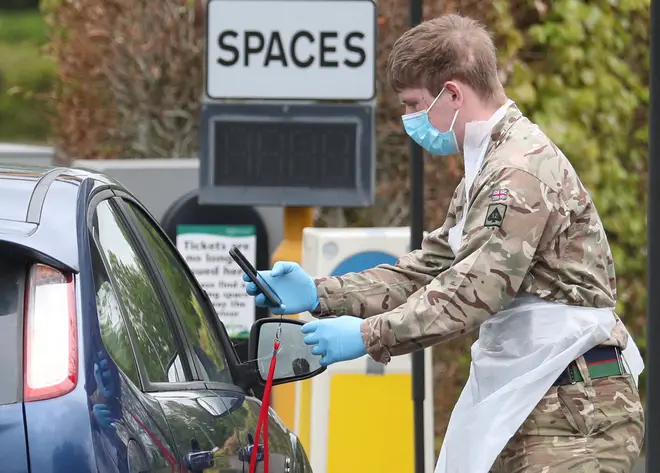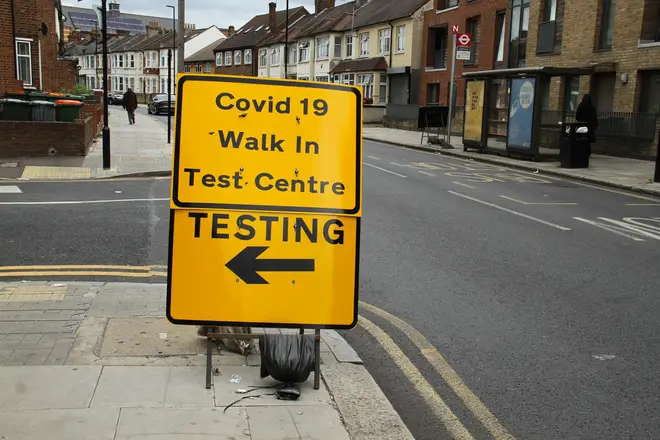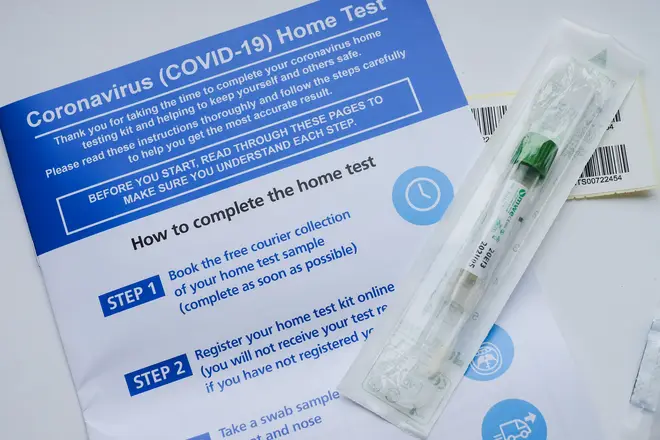
Clare Foges 6pm - 9pm
4 August 2020, 12:02

With fears of a second wave of coronavirus brewing across Europe, the NHS Test and Trace scheme is crucial to preventing another national lockdown.
Infections of Covid-19 are rising in parts of the UK and Professor Chris Whitty, England’s chief medical officer, has warned we have “probably reached the limit” of reopening society.
Here’s everything you need to know about getting a test, and the contact tracing system.
Six groups of people are given priority for testing:
- Those who have symptoms
- Household members of those with symptoms
- Those awaiting treatment at hospital who have been advised to take a test
- Those in areas with a local outbreak
- Essential workers
- Care home residents and staff.
The test involves taking a swab of the inside of your nose and the back of your throat, using a long cotton bud.
You can do the swab yourself (if you are aged 12 or over) or someone can do it for you. Parents or guardians have to swab test children aged 11 or under.
You should get the result within 72 hours, although some tests take longer. If the result comes back as unclear, borderline or void you need to get another test as soon as possible.
Government guidance states you must order a test within five days if you experience Covid-19 symptoms: a high temperature, a new and continuous cough, or a loss or change to your sense of taste or smell.
In this event, first you should self-isolate for at least ten days, and everyone in your household must self-isolate for 14-days from the time you first experienced symptoms.

If you’re a member of the public, you can order a home-kit test on the NHS website or call 119. It will be delivered to your door so you don’t need to leave self-isolation.
On days one to four of your symptoms, you can get tested at a site or at home. If you're ordering a home test kit on day 4, do it by 3pm.
On day five, you need to go to a test site as it’s too late to order a home test kit.

If your test is positive, you must continue your 10-day self-isolation period and members of your household must do so for their 14-day period.
If the test comes back negative, you can all come out of self-isolation.
NHS Test and Trace may contact you to ask you to disclose those you have come into contact with. Any calls from the service will come from 0300 013 5000, and any texts or emails will direct you to the NHS Test and Trace website.
If you’re an essential worker, you can also get a test. Employers of essential workers can also refer them for tests.
Essential workers include NHS and social care staff, charity workers on the front line, public servants, transport workers, those in education and journalists.
If you’re not self-isolating, you can either order a home-test kit on the NHS website, visit a mobile testing centre or attend a local NHS facility providing tests.

New 90-minute tests for Covid-19 to be rolled out
This is not mandatory but if you’re awaiting treatment, for example surgery, you may be advised to get one, and will be given guidance on how best to do this.
The Government has pushed back its pledge to rollout tests for all care home residents and staff this summer, with 7 September the new planned date.
Under the plans, care home staff will be tested weekly and residents every 28 days.
Care home bosses can apply for tests on the Government website. If they suspect an outbreak and need more urgent testing, they can contact their local Health Protection Team.

James O'Brien: "They didn't put a protective ring around care homes, it was carnage"
Up until now, Covid-19 tests have taken 48 hours to give a result from a testing site, and 72 hours from a home kit.
Now, new 90-minute rapid swab tests, called LamPORE, to detect coronavirus and flu are being rolled out from next week in hospitals and care homes.
Additionally, around 5,000 DNA test machines, which have already been used in eight London hospitals and can analyse nose swabs, will be available across NHS hospitals from September, the Department of Health said.
It is unclear when they will be made available to the wider public.
Aside from the main Covid-19 test to check if you’ve got the virus, there’s also an antibody test to check if you’ve had it previously. This is useful given many people carry the virus asymptomatically.
An antibody test does not tell you if you’re immune to the virus, or whether you can or cannot spread it to others. If you test positive for antibodies, you still need to follow social distancing and public health rules like everyone else.
Free antibody testing is not widely available yet and any home kits being sold have not been confirmed by the NHS as safe and reliable, so should be avoided. It's currently offered to NHS and care staff, as well as some hospital patients and care home residents.